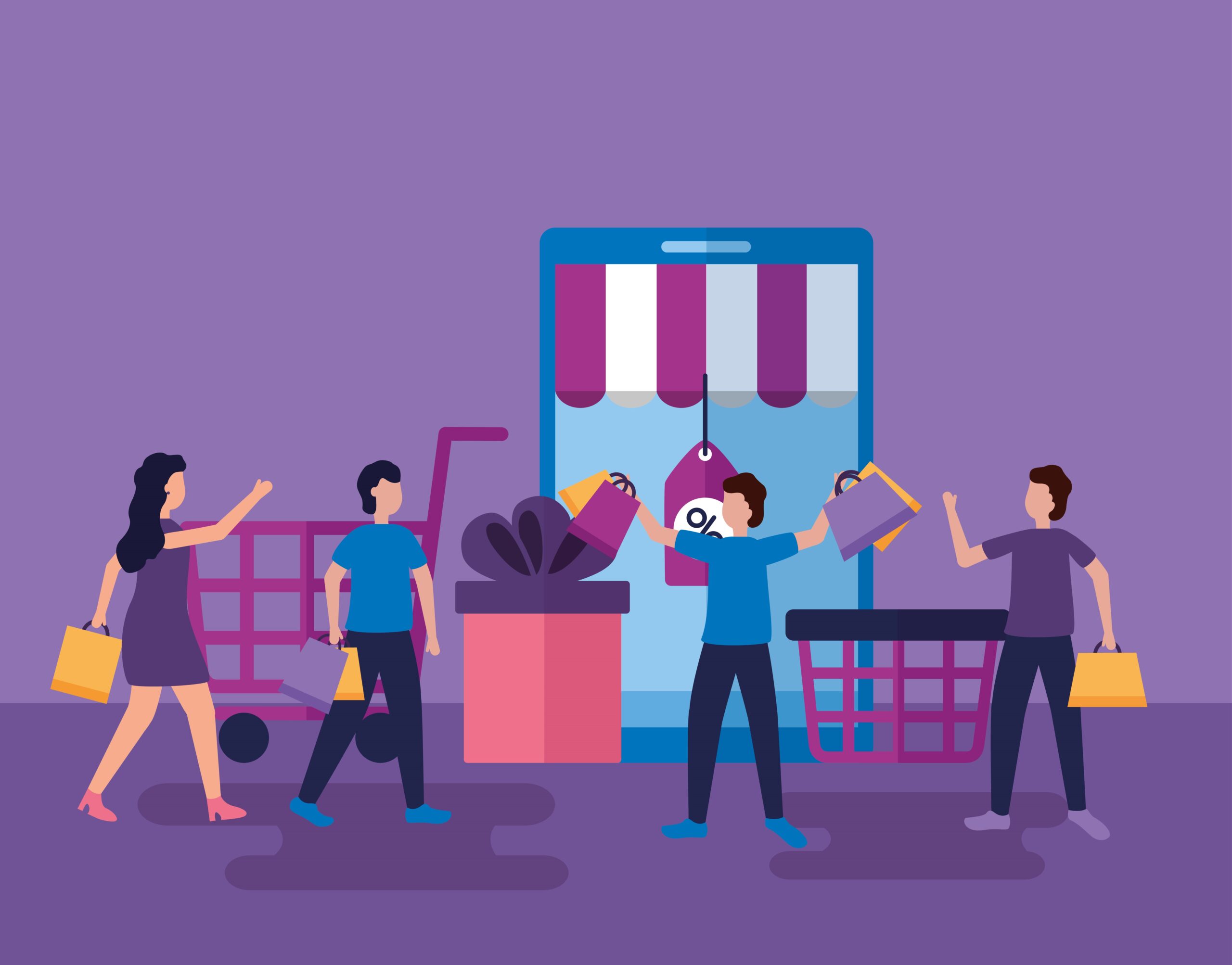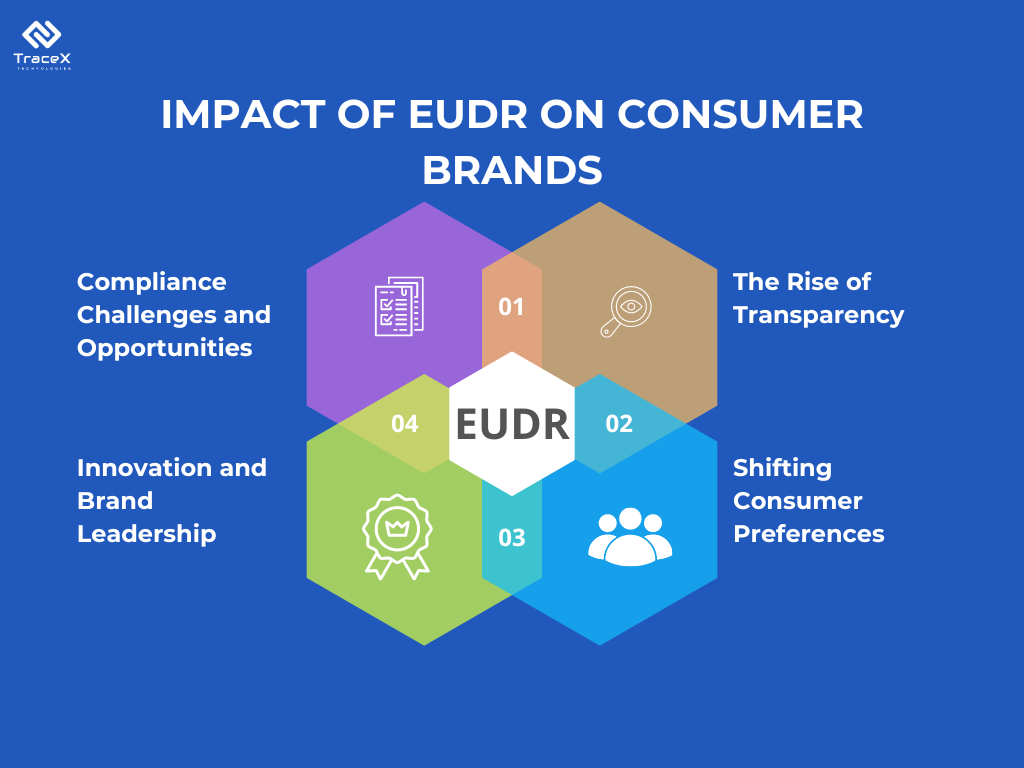Contact: +91 99725 24322 |
Menu
Menu
Quick summary: The EU Deforestation Regulation (EUDR) is a game-changer for consumer brands. This blog dives into the impact of EUDR, explores challenges and opportunities, and provides strategic responses for brands to ensure compliance and become sustainability leaders. Learn how to navigate EUDR and thrive in a greener future!

The EU Deforestation Regulation (EUDR) for consumer brands isn’t just another compliance hurdle—it’s a direct challenge to how brands source, market, and sell products containing cocoa, coffee, soy, palm oil, rubber, and timber. By 2025, brands that can’t prove deforestation-free sourcing risk more than fines—they face market bans, product recalls, and irreversible consumer trust loss.
Many consumer brands still rely on generic sustainability claims without the farm-level data EUDR now demands. In an era where transparency = trust, the days of “ethical” labels without proof are over. Are you ready to protect your brand’s reputation, market access, and supply chain integrity—or risk losing ground to competitors who are?
Key Takeaways
If your product is made with coffee, cocoa, palm oil, soy, rubber, cattle, timber, or leather—welcome to the front lines of EUDR compliance.
And no, it’s not just “commodity traders” who need to worry. Consumer brands are directly in the spotlight—because EUDR follows the supply chain all the way to the end product.
Think about it:
If any of these sit on your product shelf, your brand is now expected to prove the raw materials are deforestation-free—with geo-coordinates to back it up.
Most of these commodities are sourced from regions flagged by EUDR:
These are beautiful, resource-rich places—but also ground zero for deforestation-linked supply chains.
Your buyers don’t care if deforestation happened 3 tiers back. Under EUDR, your brand is liable if that chocolate, handbag, or moisturizer can’t prove its raw materials are clean and compliant.
It’s no longer about what your label says—it’s about what your data proves.
If you’re in FMCG, retail, food, beauty, or fashion, EUDR impacts you.
Traceability is no longer optional—it’s the price of access to the EU market.

EUDR isn’t just a supply chain issue. For consumer brands, it’s a reputation minefield waiting to explode.
Think about what’s at stake:
And worse—the hit to your brand equity could linger for years.
Today’s Consumer is Watching
Your customers don’t just care what’s in your product—they care where it came from.
With EUDR, you’re not allowed to hide behind vague “sustainable sourcing” claims anymore. You need hard proof—down to GPS coordinates of your raw materials.
Here’s the shift no one’s talking about:
EUDR flips the burden of proof onto YOU, the brand—not your supplier.
Sitting back and hoping your suppliers “are doing the right thing” won’t cut it anymore. The brand risk from EUDR non-compliance is real, immediate, and public.
EUDR doesn’t care how good your sustainability story sounds.
It cares how good your data is.
For too long, consumer brands have leaned on certifications, supplier declarations, or “ethically sourced” labels to build trust.
With EUDR traceability requirements, the rules of the game have changed:
1. A Due Diligence Statement (DDS)
You must file a digital report into the EU system before your product hits the market—declaring that it’s deforestation-free, traceable, and verified.
No DDS = No market access.
2. Geolocation of Raw Materials (Farm-Level Proof)
Down to the coordinates.
The EU doesn’t want country-of-origin anymore. It wants the exact farm, plot, or land parcel.
If that cocoa came from plot A—but plot B next door was deforested post-2020—you’re exposed.
3. Risk Assessments & Mitigation Plans
It’s not enough to collect data. You must analyze risks:
Is that rubber farm near a protected forest?
Was that palm oil plantation expanded after 2020?
Your risk plan must prove you checked and fixed any gaps.
The smartest brands won’t wait for EUDR enforcement letters.
They’ll flip the script:

EUDR compliance is too complex, too risky, and too data-heavy to manage with spreadsheets, PDFs, or good-faith supplier emails.
For brands sourcing commodities like coffee, cocoa, palm oil, soy, leather, or rubber—the manual route is a fast track to non-compliance.
EUDR compliance tools for brands are evolving fast—and they don’t just check a regulatory box; they future-proof your supply chain, marketing, and ESG strategy.
Blockchain locks down every supply chain transaction—farm to factory to shelf—in a secure, tamper-proof system.
No more blind spots. No more supplier promises without proof.
Satellite mapping and AI-powered deforestation alerts show you—in real time—whether your cocoa, palm oil, or rubber really came from deforestation-free land.
EUDR requires brands to submit DDS reports that prove compliance—for every shipment.
Manual reporting? It’s a nightmare.
Digital platforms generate DDS automatically:
Why should your sustainability proof live in a folder no one can find?
Smart brands will use these EUDR compliance tools for brands to win consumer trust, protect market access, and fuel sustainability storytelling.
Let’s talk about the right digital traceability platform for your supply chain.
TraceX offers an end-to-end digital traceability solution designed to help consumer brands seamlessly comply with the EU Deforestation Regulation (EUDR) while protecting their supply chains and brand reputation.
Most brands see EUDR as a compliance headache. Smart brands? They see it as a growth opportunity hiding in plain sight.
Here’s the truth: EUDR compliance isn’t just about avoiding penalties—it’s a market differentiator that future-proofs your brand.
Early Compliance = Market Access + Buyer Confidence
Consumers are done with vague green claims.
EUDR forces brands to move from “ethically sourced” stickers to data-backed proof.
ESG reporting is here to stay, and consumer expectations are only getting tougher.
Here’s the angle most brands miss:
The brands that win tomorrow are the ones investing in traceability today.
In a world where sustainability, transparency, and compliance define market access, EUDR for consumer brands is non-negotiable. The brands that act now—by investing in digital traceability and deforestation-free sourcing proof—will lead the next era of consumer trust and global trade.
The choice is clear: risk non-compliance and market loss or turn EUDR compliance into a competitive advantage and ESG leadership story.
EUDR compliance is mandatory for any consumer brand sourcing coffee, cocoa, rubber, leather, soy, palm oil, or timber. Non-compliance risks EU market bans, reputational damage, and fines—making traceability essential.
Brands must provide farm-level geolocation data, conduct risk assessments, and submit a Due Diligence Statement (DDS)—proving their raw materials are deforestation-free.
No. EUDR requires data-backed proof beyond certifications. Brands must implement digital traceability tools for complete supply chain visibility and compliance documentation.
